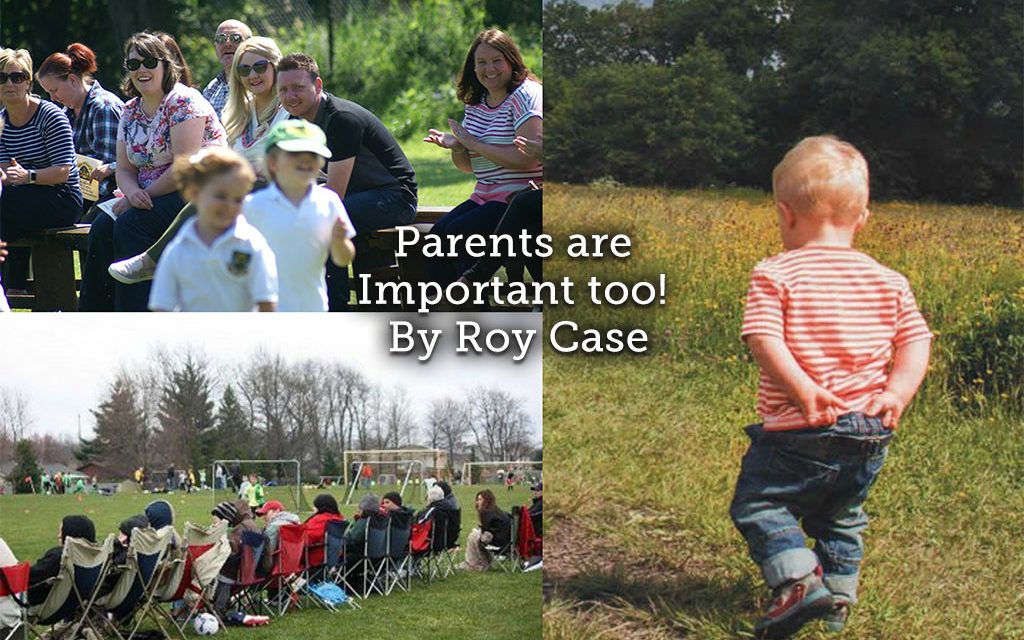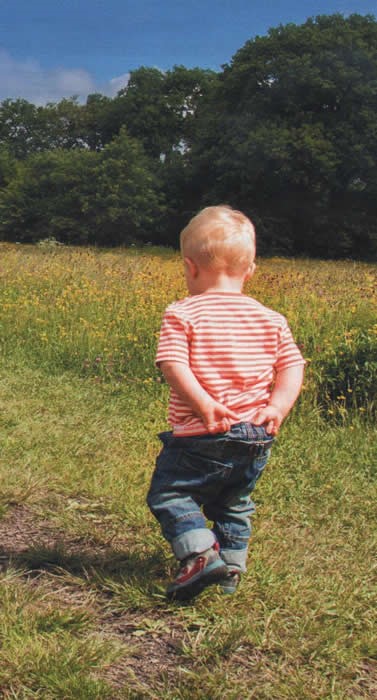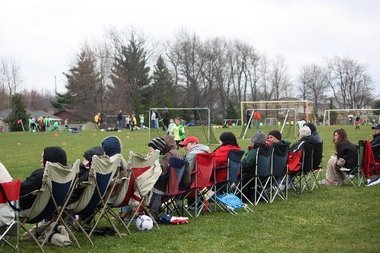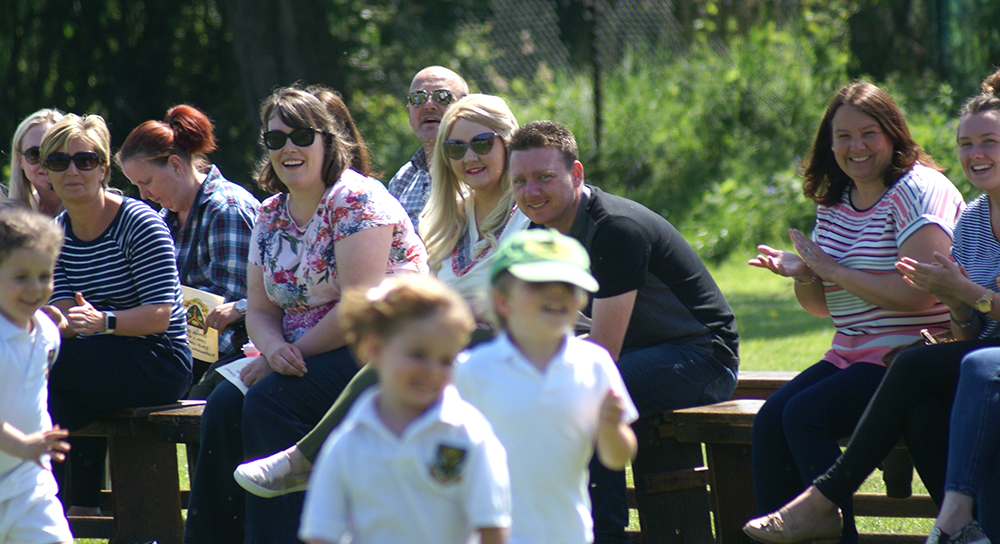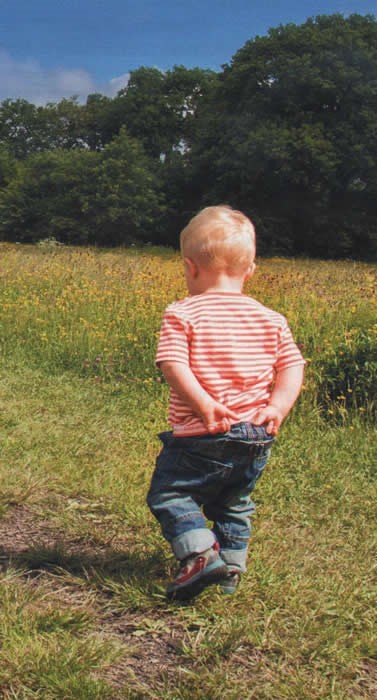These days a great many children regularly engage in some form of sporting activity. And although most of them play just for fun, some take their chosen sport much more seriously and spend many hours every week developing their skills.
Regardless of the child’s level of commitment, whether it simply for pleasure, at club or elite level, parents have a vital role to play. By and large they usually want to help as much as possible, and indeed the support and interest of a parent is usually central to a child’s enjoyment of sport and successful participation.
- When I grow up I want to be a jockey…….
Mums and dads are frequently called upon to transport their son or daughter to engage in some form of training and practice, or take part in organised competitions, and cope with irregular mealtimes and much more. However, there are occasions when from time to time an enthusiastic parent, or a close relative, can become over involved, and unconsciously apply pressure on a youngster to perhaps practice more than they might want to, or to win at all costs, at the expense of the enjoyment to be gained from taking part.
Watching a child compete can be an emotionally draining experience for a parent, who may take their child’s sporting achievement far more seriously than that of the child. Of course most parents are only trying to help, but it is important youngsters learn practice and competition is not a threat, but should be regarded as a healthy and pleasurable challenge. It is important a child recognises that genuine effort brings its own reward. Parents who over-emphasize success and the need to win, can result in fear of failure, with love and respect seen as contingent upon winning.
Perhaps some parents and relatives are unsure how best to contribute in guiding their children how best to learn how to maximise their enjoyment and involvement in their chosen sport. Before reading on think for a moment about how much your child’s sport means to you, and gauge the intensity of your involvement by considering the following questions.
- Do you want your child to win more than they do ?
- Do you show your disappointment if they play poorly ?
- Do you feel you have to psyche your child up before a competitive event ?
- Do you feel your child can only enjoy sport if they perform well ?
- Do you conduct ‘post-mortems’ immediately after competition or practice ?
- Do you feel that you have to force your child to practice ?
- Do you find yourself frequently wanting to interfere during practice or competition thinking that ‘you could do better’ ?
- Do you find yourself disliking other good competitors ?
If you have answered yes to any of these questions, you may be putting unnecessary pressure on your child, which in turn could lead to them eventually rejecting the sport or, on extremely rare occasions, even lasting damage to your relationship.
What follows may help maximise your contribution to your child’s sporting enjoyment, and help minimise any adverse effect.
- Do get to know your child’s coach and sports club junior organiser. After all they can play an important role in your child’s general development.
- Do respect the professional coach’s opinion. After all, they will usually be more knowledgeable when it comes to the subject and the development or young athletes..
- Do assess your child’s progress, and don’t be afraid to ask the professional what plans or objectives they may have for your child. And ask for an explanation of the reason for any decision you don’t understand.
- Do talk to other parents. It is often a good idea to get to know other parents.
- Do establish clear lines of communication. In the event you need to speak with the club professional, club junior organiser, county or national officials, regarding practice or competitive events. Establish the most convenient and appropriate way of contacting them.
- Do encourage effort as well as results. Don’t assess your child’s progress solely by how many competitions they may win. It is important to recognise and reward effort.
- Don’t address a criticism regarding your child, to the professional coach or officials, in front of other parents or especially players.
- Don’t respond to a bad result or mistake with punishment or criticism. Give your child time to work out for themselves why things went wrong. If they ask your advice, first compliment then for something they did right, then give the advice, emphasising the positive rather than the negative consequences of a mistake. It is essential for a parent to give encouragement even after a poor performance.
- Don’t turn a blind eye to any bad behaviour, cheating or bad manners by your child. In such instances reasonably prompt action is appropriate. To do otherwise will infer that you condone such behaviour, or consider personal standards and respect of people and rules important in sport.
- Don’t forget your child is still growing. Training which may be appropriate for an adult can have adverse long term effects on the growth and development of a young child.
- A ten year-old is not half an twenty year-old !
- Don’t coach from the side-lines. Try to encourage your child to think for themselves. A constant stream of instruction from you may only confuse the child, particularly if it is contrary to that of the professional coach.
- Don’t ignore aches and pains. Children are often tight-lipped when suffering a sports-related injury, especially if it means missing coaching practice or competition. It is important to take sports injuries seriously. Remain observant and listen for persistent grumbles about health.
- Don’t ignore other children in the family. Sometimes other siblings may feel left out or bored if the family household seemingly revolves around the needs of a young sports person. It is important to try to keep the balance between sport and the interests of other members of your family.
- Don’t allow the situation to develop where your child is frightened of playing or performing poorly because of the way you respond. A fear of failure can often result in children feigning injury, avoiding competitive events or playing with unnecessary caution.
- Don’t force a young child to specialise entirely on one specific sport. Children should be allowed to develop their own preferences. A concentrated diet of playing just one sport to the exclusion of other physical activities may lead to a decline in enthusiasm.
- Don’t greet your child with ‘Did you play well ?’ or ‘How did you get on ?’ Why not begin with ‘Have you had a nice time ?’ or ‘Did you enjoy yourself ?’
- Don’t attend throughout every lesson and every competition. It is important for your child’s future development they be trusted to make the correct decisions during practice and competition. This is the first stage in the development of self-motivation and self-reliance. Constant supervision by a parent or close relative may lead to the youngster becoming over-dependent on your presence and advice.
- Don’t say ‘we’ won or ‘we’ lost. It is important you don’t become so involved in your child’s sporting achievements that you find yourself saying ‘we played well’ or ‘we played badly’. Remember it is your child who is participating … not you !. You are there to support and encourage, not compete. The progress of many sports enthusiasts has been hindered by excessive parental attachment.
- Don’t attempt to fulfil your sporting aspirations through your child. Avoid ‘achievement by proxy’.
The benefits to be obtained from children participating in sport are substantial, including a feeling of well-being, the enhancement of self-confidence and self-esteem, and an improvement in both physical and mental health. On the other hand, there is evidence to suggest that from time to time a small minority of the children do encounter negative and harmful sporting experiences, ranging from the misuse of power, bullying, systematic abuse, and threatening behaviour.
Providing a child is faced with realistic challenges, sport should be fun, regardless of the level at which it is played. And with the right parental support, not only will your child be able to develop their sporting potential in an enjoyable, rather than a stressful, sporting environment. You will also be providing them with an opportunity to obtain a sense of achievement, competence and self-worth.
Parental example is so important. After all, if you can’t cope with the ups and downs of your children’s sporting life … can you realistically expect it of them ?
Article © Roy Case
- ….. or maybe a footballer?

